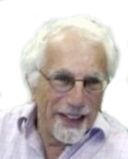
Transgender
Prejudice, Not Science, Wins the Day in Toronto
Transgender politics damages itself, and a Toronto clinic.
Posted February 17, 2016
Sexuality is not a binary event: Kinsey taught us that more than 60 years ago. So now we recognize that sexual preference can range from exclusive heterosexuality to homosexuality through a series of intervening states. The same applies to gender identity: whether someone thinks they are male or female. Whilst most people would ‘agree’ with their chromosome constitution (XY is male, XX is female) a few do not. Even those who do, are not unanimous in what they mean by ‘male’ or female’, or how ‘male or ‘female’ they are. There are some well-known discrepancies: the best is the androgen-insensitive syndrome (AIS) which, if complete, usually results in a female phenotype and gender identity in an XY body. This suggests that early exposure to testosterone might play a major part in the development of sexual identity, as it does in other aspect of sexuality, though certainly not a solo role. Levels of testosterone and the sensitivity of the developing brain to it vary. It’s likely that gender identity is also variable, and is subject to many influences, and that these can change during the life span. But our society demands a binary definition. You are either male or female: in most countries, your passport says so, your workplace says so. But your brain may not be quite so definite.
Helping those who are gender dysphoric is thus a skillful business, and there are few who do it well. One of those was the Gender Identity Clinic at Toronto’s Center for Addiction and Mental Health (CAMH). Last December its director, Professor Ken Zucker, was summarily dismissed, and the clinic closed down. Why? The clinic had been reviewed by two external assessors, neither of whom (unlike Zucker) seems to have a record of research or clinical experience in transgender matters. Their conclusion was that the clinic was out of step with current best practice. But the real reason was something else: the clamor from a segment of the transgender community. Zucker, they claimed, had been trying to ‘convert’ children who were transgender to accept their phenotypic sex. This recalls the attempts to ‘cure’ homosexuality’, a now discredited feature of early twentieth century medicine. They bolstered their case with a wholly fictitious account of Zucker insulting a transgender patient. CAMH initially accepted this story on their website, but subsequently retracted it.
What about the science? It is well-known – and Zucker has published extensively on this and is an international authority – that gender identity (which has many dimensions) is not necessarily fully formed or definite in young children, though, of course, in some it may be. This applies to those who seem to be potentially transgender. It is prudent and necessary to inquire carefully and skillfully into such children, before they are subjected to the drastic endocrine and surgical (and social) procedures that are involved in the transgender transition. In some, the binary definition may not apply: the Hira people of India are one example of a ‘third gender’, now legally recognized in several countries. Furthermore, it may also be prudent to wait for the child’s further development, and even delay puberty, before a final decision is made by both the individual and clinicians on gender assignment. The outcome of the present system is not so satisfactory that we can say there is an ‘accepted’ course of action. There is plenty of disagreement, as in all other areas of science; this is how medicine progresses. But Zucker and his clinic weren’t penalized for allegedly poor science (he was given no opportunity to defend his position), but were the victims of strident politics. No-one blames transgender people for firm and active political activity: they have been poorly treated in the past. But when debate turns into fanaticism, and reason goes out of the window, it’s time to blow the whistle, however good the cause. Medical scientists seek greater understanding of their subject, and better treatments for their patients, not martyrdom. Zucker is not the first scientist to be pilloried for politically unpopular views: remember Galileo? I have always thought of Canada as liberal, fair-minded and reasonable: Toronto and its CAMH are betraying their country’s ideals.
For a fuller account in New York magazine see:
http://nymag.com/scienceofus/2016/02/fight-over-trans-kids-got-a-resear…

